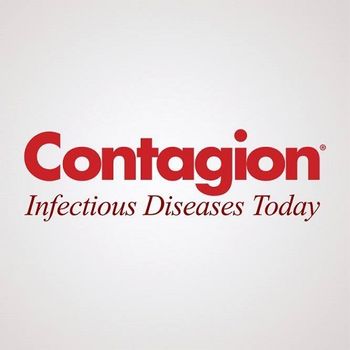
Contagion® Launches Peer Exchange on Multidrug-Resistant Bacterial Infections
Panel of experts discusses ongoing challenges and possible treatments for multidrug-resistant bacterial infections.
CRANBURY, N.J.--(BUSINESS WIRE)--Contagion®, the nation’s leading digital and print publication that provides practitioners and specialists working in the infectious disease field with disease-specific information, has launched its latest Peer Exchange panel discussion, “Outsmarting Resistant Bacterial Infections.” The discussion features experts from the fields of infectious disease pharmacy and critical care debating the role of newer antibiotic therapies in the hospital setting and emphasizing the importance of antimicrobial stewardship in the battle against antibiotic resistance. The first four segments of the 16-part discussion are available online now.
Joining moderator Peter L. Salgo, M.D., professor of medicine and anesthesiology at the College of Physicians and Surgeons, Columbia University, and director of surgical intensive care at New York- Presbyterian Hospital on the panel are Sandy J. Estrada, Pharm.D, BCPS, an infectious disease clinical pharmacist at Lee Memorial Health System of Fort Myers, Florida; Debra Goff, Pharm.D, FCCP, associate professor and infectious disease specialist from the Ohio State University Wexner Medical Center; Jason Pogue, Pharm.D, BCPS-AQID, an infectious diseases clinical pharmacist at Sinai-Grace Hospital and clinical assistant professor of medicine at Wayne State University School of Medicine; and Andrew Shorr, M.D., MPH, section head, Pulmonary and Critical Care Medicine at MedStar Health Research Institute and professor of medicine at Georgetown University in Washington, D.C.
Kicking off the discussion with a debate about the magnitude of multidrug-resistant (MDR) infections, that the panelists noted that the although the Centers for Disease Control and Prevention report of about 2 million patients are infected annually with a multidrug-resistant pathogen and about 23,000 of those patients die, those numbers might actually be underestimated. In fact, the panelists emphasize that the number of individuals dying from drug-resistant infections is on the rise.
In trying to understand the causes and impact of MDR infections, panelist Dr. Shorr asserted that clinicians are as responsible as patients in terms of contributing to these infections. “The majority of [these infections are the result of] some exposure to the health care industry,” added Dr. Pogue. “[However,] there are certain versions that have transmitted out into the community. MRSA is a good example of that. You certainly see patients with purulent skin infections [coming in] from the community; that’s community-acquired MRSA. [E]ven in the gram-negative space, we’ve started to see [community-acquired infections] occur. Extended-spectrum beta-lactamases (ESBLs) are the real example there.”
Although researchers are developing new antibiotics to fight these virulent infections and a there has been a spike in development on both national and international levels, the panelists argued that the focus might not be where it should be. “We have seen more development of antibiotics than we were seeing before; there has been a lot of excitement around that,” said Dr. Estrada. “Unfortunately, if you look at it, a lot of them have been developed to treat MRSA infections, and so, most of the new antibiotics that we’ve seen up until the last couple of years were targeted in a gram-positive arena.”
In terms of new antibiotics to treat gram-negative infections, panelists highlight the pros and cons. “I think the important thing to realize is particularly among the[se] newer agents―whether it’s Zerbaxa, Vabomere, Avycaz―they all have unique strengths and weaknesses,” emphasized Dr. Schorr. “They all have trade-offs that have to be contemplated. They all have different spectrums of activity, and not one of them is going to be the right answer for every hospital. You have to be thoughtful in looking at these agents and decide, do they offer me [the clinician] a benefit? Is there a role for [them] at my hospital? Do [they] fit with my concept of antibiotic/microbial stewardship? [The answer] may be, no, they don’t, and it may be yes, they do.”
The biggest challenge remains in changing clinicians’ prescribing habits. “It’s called the behavior change of antimicrobial stewardship,” stressed Dr. Goff. “How do you change behavior of what we’ve done for decades? That, to me, is the biggest challenge of a stewardship program, understanding how to change behavior because that is the million-dollar problem.”
Additionally, risk factors and systemic issues are associated with long-term care settings that contribute to the formation of gram-negative nosocomial infections. “I think the literature convincingly shows that those places breed resistance because they’re the last Wild West where there’s no focus necessarily on good infection-prevention and there’s very little focus on antibiotic prescribing,” said Dr. Schorr. “There’s a lot of ‘drive-by medicine’— people run in and run out, and no one [takes] ownership of the system.” Dr. Pogue echoed these sentiments, stating that patients in long-term care facilities are “poster children” for MDR bacterial infections. Possible solutions for better communication between hospitals and long-term acute care hospitals are explored.
To view additional segments from this Peer Exchange series and access series on other disease-specific topics, visit
About Contagion®
Contagion® is a fully integrated print and digital news publication that provides health care practitioners and aligned professionals with timely information and resources to improve patient outcomes and positively affect the identification, diagnosis, treatment and prevention of infectious disease. It also incorporates the outbreak monitor, which provides real-time information about infectious disease outbreaks by geographical region. Contagion® is part of Michael J. Hennessy Associates, Inc., a full-service health care communications company offering education, research, and medical media.
Contacts
Contagion® Media:
Theresa Burek, 609-325-4811
tburek@mjhassoc.com
Surabhi Verma
sverma@mjhassoc.com
Newsletter
Stay ahead of emerging infectious disease threats with expert insights and breaking research. Subscribe now to get updates delivered straight to your inbox.






























































































































